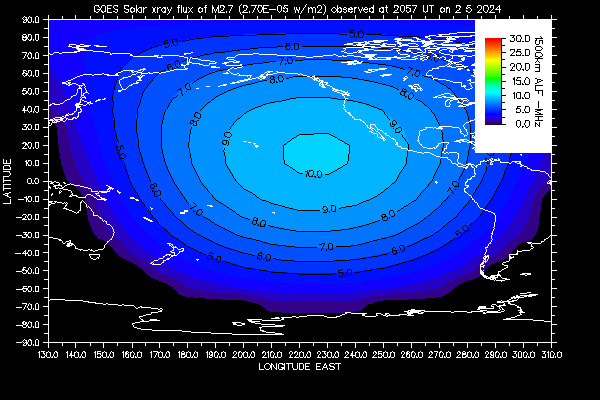Last Major Flare
Last updated: 16 Feb 2026 04:02:27 am UTC

During a solar flare, increased ionisation in the D-layer of the ionosphere can result in reduced signal strengths for HF circuits which are reflected by the ionosphere on the sunlit hemisphere of the earth. This is known as a short-wave fadeout.
The map above shows the absorption limited frequency (ALF) - the lowest frequency able to propagate - for HF circuits typically 1500 km in length. To use the plot, work out the approximate location where your circuit is being reflected by the ionosphere and estimate the value of the ALF from the contours. If the frequency you wish to use is lower than this value then communication is unlikely; if it is higher than the ALF then communication is still possible.
For short circuits compared with 1500 km, the ALF values from the map are likely to be too high and communications will still be possible for slightly lower frequencies. For much longer circuits, slightly higher frequencies than the suggested ALF can still be affected by the fadeout.
This plot is event driven and updates when a flare of magnitude M1 or greater is observed.




